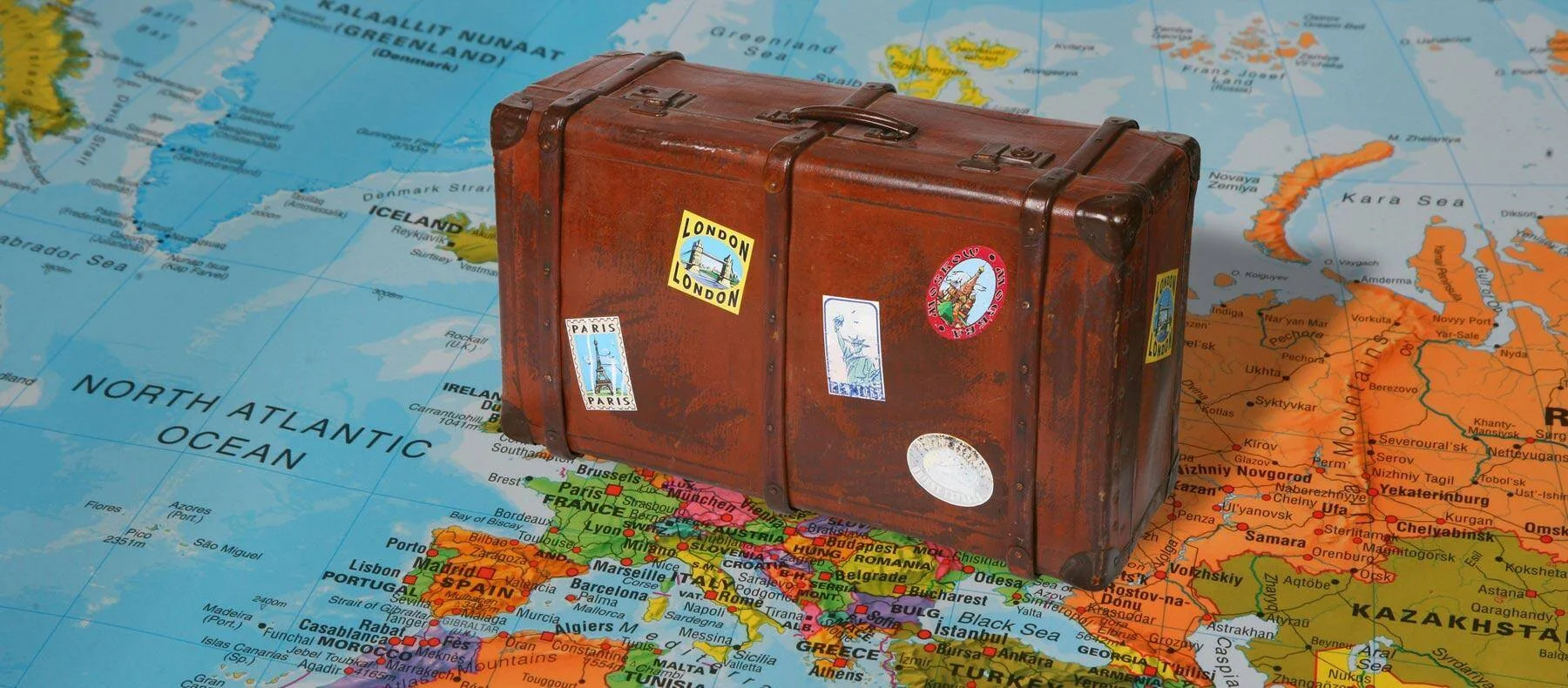- Home
- Travel news
- MICE business
- Country news
- Abu Dhabi
- Argentina
- Armenia
- Austria
- Azerbaijan
- Australia
- Bali
- Baltic
- Belgium
- Bolivia
- Botswana
- Brazil
- Budapest
- Cambodia
- Canada
- China
- Chile
- Colombia
- Costa Rica
- Croatia
- Cyprus
- Czech Republic
- Dubai
- Ecuador
- Egypt
- Finland
- France
- Germany
- Greece
- Hong Kong
- Iceland travel news
- India
- Ireland
- Israel
- Italy
- Japan
- Jordan
- Kazakhstan
- Kenya
- Lebanon
- Malaysia
- Malta
- Mauritius
- Mexico
- Montenegro
- Morocco
- Namibia
- Netherlands
- New Zealand
- Oman
- Panama
- Peru
- Poland
- Portugal
- Russia
- Qatar
- Saudi Arabia
- Scandinavia
- Scotland
- Senegal
- Serbia
- Singapore
- Slovenia
- South Africa
- Travel news South Korea
- Spain
- Switzerland
- Travel news Tanzania and Zanzibar
- Thailand
- Tunisia
- Turkey
- Ukraine
- United Kingdom
- USA
- Uzbekistan
- Vietnam
- West Africa
- Zambia and Zimbabwe
- Useful links
- Sports events calendar
- Contact/contribute

Latest Travel advice China and Hong Kong
- easyJet Looks at Summer 2026 and Says: “More Sun, More Pasta, Please”
- SWISS officially announce exciting Airbus A350 on Zurich–Seoul route
- IndiGo launches exciting first-ever non-stop India–Greece flights 2026
- FlyOne Armenia Launches Exciting direct Vienna-Yerevan Flights from April 2026
- Wizz Air Expands Polish Network with 3 Exciting New Routes for Summer 2026

August 4, 2021: Information on entry restrictions, testing and quarantine regulations in China and Hong Kong
Reconsider travel to the People’s Republic of China (PRC) due to arbitrary enforcement of local laws. Reconsider travel to the PRC’s Hong Kong Special Administrative Region (SAR) due to COVID-19-related travel restrictions.
Read the Department of State’s COVID-19 page before you plan any international travel.
The Centers for Disease Control and Prevention (CDC) has issued a Level 1 Travel Health Notice for the PRC and a Level 1 Travel Health Notice for Hong Kong, due to COVID-19. Your risk of contracting COVID-19 and developing severe symptoms may be lower if you are fully vaccinated with an FDA authorized vaccine. Before planning any international travel, please review the CDC’s specific recommendations for vaccinated and unvaccinated travelers.
The PRC has resumed most business operations (including day cares and schools). Other improved conditions have been reported within the PRC. Visit the Embassy’s COVID-19 page for more information on COVID-19 and related restrictions and conditions in the PRC, as testing and travel requirements frequently change.
There are restrictions in place affecting U.S. citizen entry into Hong Kong. Visit the Consulate General’s COVID-19 page for more information on COVID-19 and related restrictions and conditions in Hong Kong.
Please monitor the Hong Kong government’s website for further updates on COVID-19, as testing, transit, and travel requirements frequently change.
Country Summary:
The PRC government arbitrarily enforces local laws, including by carrying out arbitrary and wrongful detentions and through the use of exit bans on U.S. citizens and citizens of other countries without due process of law. The PRC government uses arbitrary detention and exit bans to:
- compel individuals to participate in PRC government investigations,
- pressure family members to return to the PRC from abroad,
- influence PRC authorities to resolve civil disputes in favor of PRC citizens, and
- gain bargaining leverage over foreign governments.
In most cases, U.S. citizens only become aware of an exit ban when they attempt to depart the PRC, and there is no reliable mechanism or legal process to find out how long the ban might continue or to contest it in a court of law.
U.S. citizens traveling or residing in the PRC, including Hong Kong, may be detained without access to U.S. consular services or information about their alleged crime. U.S. citizens may be subjected to prolonged interrogations and extended detention without due process of law.
Foreigners in the PRC, including but not limited to businesspeople, former foreign government personnel, and journalists from Western countries, have been arbitrarily interrogated and detained by PRC officials for alleged violations of PRC national security laws. The PRC has also threatened, interrogated, detained, and expelled U.S. citizens living and working in the PRC.
Security personnel may detain and/or deport U.S. citizens for sending private electronic messages critical of the PRC government.
The PRC government does not recognize dual nationality. U.S.-PRC citizens and U.S. citizens of Chinese heritage may be subject to additional scrutiny and harassment, and the PRC government may prevent the U.S. Embassy from providing consular services.
XINJIANG UYGHUR AUTONOMOUS REGION and TIBET AUTONOMOUS REGION
Extra security measures, such as security checks and increased levels of police presence, are common in the Xinjiang Uyghur and Tibet Autonomous Regions. Authorities may impose curfews and travel restrictions on short notice.
HONG KONG SPECIAL ADMINISTRATIVE REGION
Since the imposition of the National Security Law on June 30, 2020, the PRC unilaterally and arbitrarily exercises police and security power in Hong Kong. The PRC has demonstrated an intention to use this authority to target a broad range of activities it defines as acts of secession, subversion, terrorism, and collusion with foreign entities. The National Security Law also covers offenses committed by non-Hong Kong residents or organizations outside of Hong Kong, which could subject U.S. citizens who have been publicly critical of the PRC to a heightened risk of arrest, detention, expulsion, or prosecution. PRC security forces, including the new Office for Safeguarding National Security, now operate in Hong Kong and are not subject to oversight by the Hong Kong judiciary.
Demonstrations: Participating in demonstrations or any other activities that authorities interpret as constituting an act of secession, subversion, terrorism, or collusion with a foreign country could result in criminal charges. On June 30, 2020, as part of its color-coded system of warning flags, the Hong Kong police unveiled a new purple flag, which warns protesters that shouting slogans or carrying banners with an intent prohibited by the law could now bring criminal charges.
U.S. citizens are strongly cautioned to be aware of their surroundings and avoid demonstrations.
Propaganda: A PRC propaganda campaign has falsely accused individuals, including U.S. citizens, of fomenting unrest in Hong Kong. In some cases, the campaign has published their personal information, resulting in threats of violence on social media.
Read the country information page for the PRC and for Hong Kong.
If you decide to travel to the PRC, including the Hong Kong SAR:
- See the U.S. Embassy’s web page regarding COVID-19 for mainland China. See the Consulate General’s COVID-19 page for updated information on COVID-19 in Hong Kong.
- For the Hong Kong SAR, monitor local media, local transportations sites and apps like MTR Mobile or CitybusNWFB, and the Hong Kong International Airport website for updates.
- Avoid the areas of the demonstrations.
- Exercise caution if you are in the vicinity of large gatherings or protests.
- Avoid taking photographs of protesters or police without permission.
- Be aware of your surroundings.
- Keep a low profile.
- For the Hong Kong SAR, review your Hong Kong flight status with your airline or at the Hong Kong International Airport website.
- Visit the CDC’s webpage on Travel and COVID-19.
- Enter the PRC on your U.S. passport with a valid PRC visa and keep it with you.
- If you are arrested or detained, ask police or prison officials to notify the U.S. Embassy or the nearest consulate immediately.
- If you plan to enter North Korea, read the North Korea Travel Advisory. Travelers should note that U.S. passports are not valid for travel to, in, or through North Korea, unless they are specially validated by the Department of State.
- Enroll in the Smart Traveler Enrollment Program (STEP) to receive Alerts and make it easier to locate you in an emergency.
- Follow the Department of State on Facebook and Twitter. Follow the U.S. Embassy on Twitter, WeChat, and Weibo. Follow U.S. Consulate General Hong Kong on Facebook and Twitter.
- Review the Crime and Safety Report for the PRC and Hong Kong SAR.
- Prepare a contingency plan for emergency situations. Review the Traveler’s Checklist
Travel advice China and Hong Kong
For more travel advise on other countries
Want to travel to China?

More about our Facebook Group

Private Facebook group
for the travel industry
Travel Talks Platform Group
5.8k members
Travel Talks Platform for the travel industry
Follow the travel news – Traveltalksplatform is the number 1 news site to stay updated on amazing travel facts, the latest news, events, incentive ideas, MICE news, job opportunities and shows.
Specially composed for the travel industry, you will find the latest travel facts at your fingertips.

The latest airline news, hotel news, cruise news and MICE news in your inbox:
Stay updated about
the latest travel news worldwide
Copyright © 2021 e-motions international
disclaimer:
We assume no responsibility or liability for any errors or omissions in the content of this site. The information contained in this site is provided on an "as is" basis with no guarantees of completeness, accuracy, usefulness or timeliness.